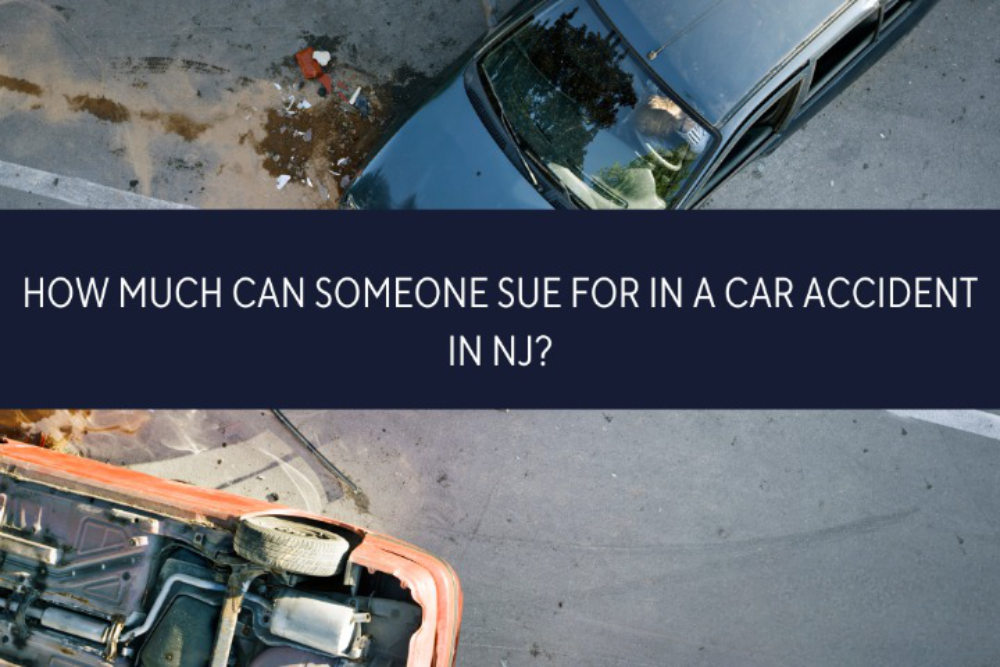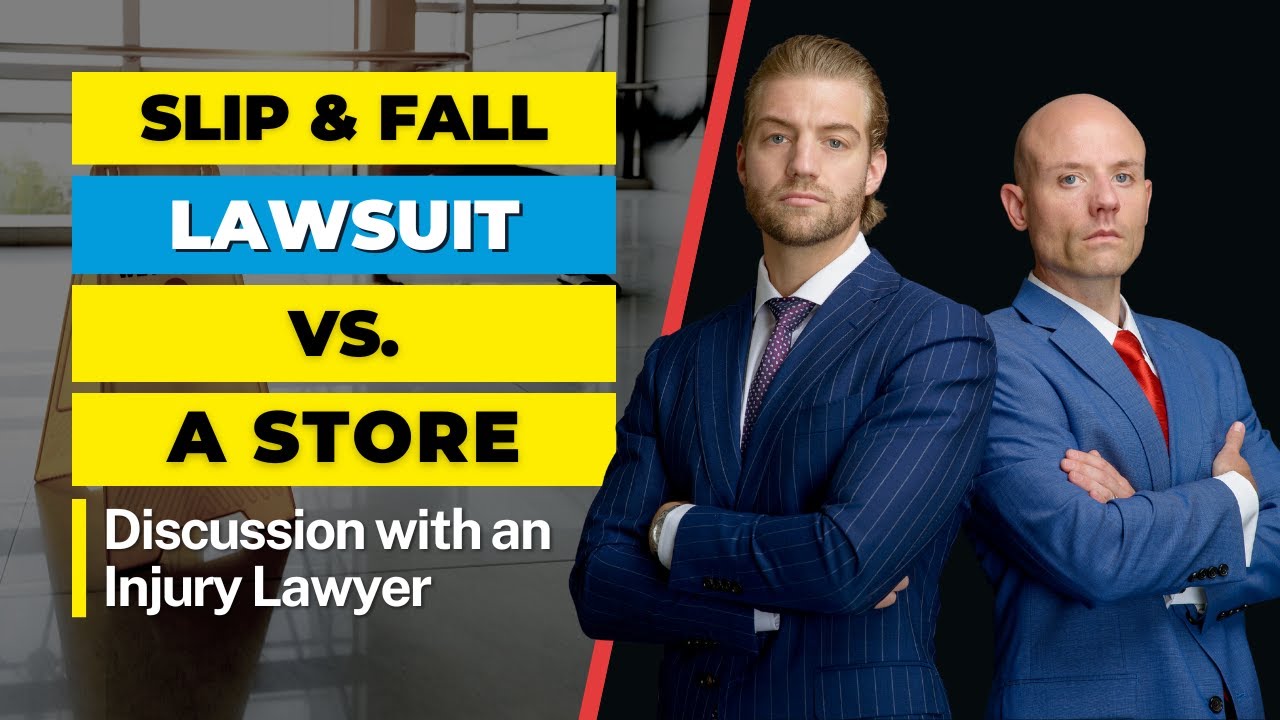What You Need to Know About Suing After a Car Accident
Getting into a car accident is never fun. It can be downright stressful and terrifying, especially if you or someone you know has been injured. If you’ve been involved in a car accident that wasn’t your fault, you may be wondering if you should sue. Suing after a car accident can be a complex and stressful process, but it can also be necessary to protect your rights and get the compensation you deserve. Here’s what you need to know about suing after a car accident.
Who Can Sue After a Car Accident?
If you’ve been injured in a car accident, you may be able to sue the at-fault driver who caused the accident. In some cases, you may also be able to sue other parties, such as the driver’s employer, the manufacturer of a defective car part or the government agency responsible for maintaining the road.
What Damages Can I Recover in a Car Accident Lawsuit?
If you’re successful in your lawsuit, you may be able to recover damages for a variety of losses, including:
- Medical expenses
- Lost wages
- Pain and suffering
- Emotional distress
- Property damage
What Can I Do to Prepare for a Car Accident Lawsuit?
If you’re considering filing a car accident lawsuit, there are a few things you can do to prepare:
- Gather evidence of the accident, such as police reports, medical records, and photographs.
- Get a copy of your insurance policy.
- Contact a car accident lawyer to discuss your case.
How Long Do I Have to Sue After a Car Accident?
The amount of time you have to file a car accident lawsuit varies from state to state. For example, California has a two year statute of limitations for personal injury lawsuits, which means that you need to file your lawsuit within two years of the date of the accident. However, it’s important to note that this is just a general guideline. There are a number of exceptions to this rule, so it’s always best to consult with an attorney to find out how long you have to file a lawsuit in your state.
Suing after a car accident can be a long and difficult process, but it can also be necessary to get the compensation you deserve. If you’ve been injured in a car accident, don’t hesitate to contact a car accident lawyer to discuss your case.
When to Sue After a Car Accident
Car accidents are a common occurrence, and they can range from minor fender benders to serious, life-altering events. If you’ve been involved in a car accident, you may be wondering whether or not you should sue the other driver. There are many factors to consider when making this decision, and it’s important to weigh all of your options carefully before proceeding.
One of the most important factors to consider is the severity of your injuries. If you’ve suffered serious injuries, such as a broken bone, concussion, or whiplash, you may be entitled to compensation for your medical expenses, lost wages, and pain and suffering. However, if your injuries are minor, you may not be able to recover any damages.
Factors to Consider When Deciding Whether to Sue
If you are wondering whether to sue after a car accident, there are many factors to consider. These include:
- The severity of your injuries. If you have suffered serious injuries, you may be entitled to compensation for your medical expenses, lost wages, and pain and suffering.
- The amount of insurance coverage available. If the other driver has little or no insurance coverage, you may not be able to recover any damages.
- The likelihood of success. If the other driver is clearly at fault for the accident, you may have a good chance of winning your case. However, if the fault is less clear, you may be less likely to succeed.
- Your financial situation. If you are struggling financially, you may be more likely to sue in order to recover compensation for your losses.
- Your emotional state. If you are feeling angry or upset about the accident, you may be more likely to sue. However, it’s important to make sure that you are making a rational decision, not an emotional one.
It’s important to seek legal advice before making a decision about whether or not to sue. An experienced attorney can help you evaluate your case and determine whether you have a strong chance of success. If you do decide to sue, your attorney can help you file a lawsuit and represent you in court.
Sued After a Car Accident? Here’s What You Can Do
After a car accident, you may be left with injuries, property damage, and a lot of questions. If the other driver was at fault, you may be considering filing a lawsuit. Suing after a car accident can be a complex process, but it’s important to understand your rights and options. Here’s a step-by-step guide to help you navigate the process:
The Process of Suing After a Car Accident
If you’re considering suing after a car accident, the first step is to gather evidence. This includes getting a copy of the police report, taking photos of the damage to your vehicle and injuries, and getting medical records. You’ll also need to identify the other driver and their insurance company. Once you have this information, you can start the process of filing a lawsuit.
The next step is to file a complaint with the court. The complaint will outline your claims against the other driver, including details of the accident, your injuries, and the damages you’re seeking. Once the complaint is filed, the other driver will have a chance to file a response. The process then moves into the discovery phase. During the discovery phase, both sides will exchange information and evidence. This can include interrogatories, depositions, and requests for production of documents. The purpose of discovery is to help both sides prepare for trial by getting all the information they need.
Going to Trial
If the case cannot be settled during the discovery phase, it will go to trial. At trial, both sides will present their evidence and arguments to a judge or jury. The judge or jury will then decide who is responsible for the accident and what damages are owed. The trial process can be long and stressful, but it’s important to remember that you’re not alone. There are lawyers and other resources available to help you through the process.
If you win your case, you will be awarded damages. Damages can include compensation for your medical bills, lost wages, pain and suffering, and other expenses. The amount of damages you are awarded will depend on the severity of your injuries and the extent of your losses.
Getting Legal Help
Should I Hire A Car Accident Lawyer?
If you’ve been injured in a car accident, you may be wondering whether you should hire a lawyer. Here are a few things to consider:
- The severity of your injuries
- The extent of your losses
- The insurance coverage available
- Your ability to represent yourself
If you have serious injuries or significant losses, it’s generally a good idea to hire a lawyer. A lawyer can help you get the compensation you deserve and protect your rights. However, if your injuries are minor and your losses are minimal, you may be able to represent yourself. Ultimately, the decision of whether or not to hire a lawyer is a personal one.
If you decide to hire a lawyer, it’s important to find someone who is experienced in handling car accident cases. Ask friends or family for recommendations, or contact your local bar association for a referral. Once you’ve found a lawyer, schedule a consultation to discuss your case. The lawyer will be able to assess your case and advise you on your options.
Who Do I Sue in a Car Accident?
You’ll want to figure out who’s behind the wheel when you get into a car crash. When it comes to holding someone legally responsible, it can get a little complicated in some cases. Sure, if the other driver was clearly at fault for the accident, filing a lawsuit against them makes sense. However, more than one party may share responsibility. It’s best to get legal advice from an experienced car accident attorney if you’re unsure who to sue. They can help you determine the best course of action based on the specific circumstances of your case,
What to Expect in a Car Accident Lawsuit
Once you have filed a complaint, the discovery process will begin. This is where both parties exchange information about the accident and their injuries. Depositions may also be taken, which are out-of-court statements given under oath. A trial date will be set if the case cannot be settled through negotiations. At trial, both sides will present their evidence and arguments to a judge or jury. The judge or jury will then decide who is liable for the accident and what damages the plaintiff is entitled to.
Possible Damages in a Lawsuit
If you’re injured in a car accident, you may be entitled to compensation for your damages. These damages can include medical expenses, lost wages, pain and suffering, and emotional distress. The amount of damages you can recover will depend on the severity of your injuries and the other party’s liability. Let’s say that both you and the other driver were found responsible for the accident. In that event, the amount you can recover will be reduced by your percentage of fault.
The Importance of Seeking Legal Help
If you’re involved in a car accident, it’s important to seek legal help as soon as possible. An experienced car accident attorney can help you protect your rights and get you the compensation you deserve. Insurance companies are notorious for trying to lowball accident victims, don’t get taken advantage of. An attorney can level the playing field and ensure that you get a fair settlement. A car accident can be a traumatic experience, but reaching out to an attorney can give you peace of mind knowing that you’re in good hands.
Sued Car Accident: Everything You Need to Know
Being involved in a car accident is a stressful and overwhelming experience. If you have been injured in a car accident that was not your fault, you may be considering filing a lawsuit. Here is everything you need to know about suing after a car accident.
Settlement and Trial
Most car accident lawsuits are settled before they go to trial. This is because settling is often in the best interests of both parties. Settlements can be reached through negotiation or mediation. If a settlement cannot be reached, the case will go to trial. At trial, both parties will present their evidence to a jury, who will then decide who is liable for the accident and the amount of damages to be awarded.
What is a Settlement?
A settlement is an agreement between the parties involved in a lawsuit to resolve the case without going to trial. Settlements can be reached at any time during the lawsuit. The terms of a settlement are typically confidential. However, in general, a settlement will include compensation for the plaintiff’s injuries and damages.
What is a Trial?
A trial is a legal proceeding in which a jury or judge hears evidence and makes a decision about a case. Trials are typically held in a courtroom. The parties to the lawsuit will present their evidence and arguments to the jury or judge. The jury or judge will then make a decision about who is liable for the accident and the amount of damages to be awarded.
What Factors Influence Settlement?
There are many factors that can influence the outcome of a settlement negotiation. Some of the most important factors include the severity of the plaintiff’s injuries, the liability of the defendant, and the insurance coverage available. In general, the more severe the plaintiff’s injuries, the more likely the defendant is to be found liable, and the more insurance coverage that is available, the higher the settlement will be.
How Long Does It Take to Settle a Case?
The length of time it takes to settle a case varies depending on the complexity of the case and the willingness of the parties to negotiate. Some cases can be settled within a few months, while others can take years to resolve. However, most cases are settled within a year or two.





Leave a Reply